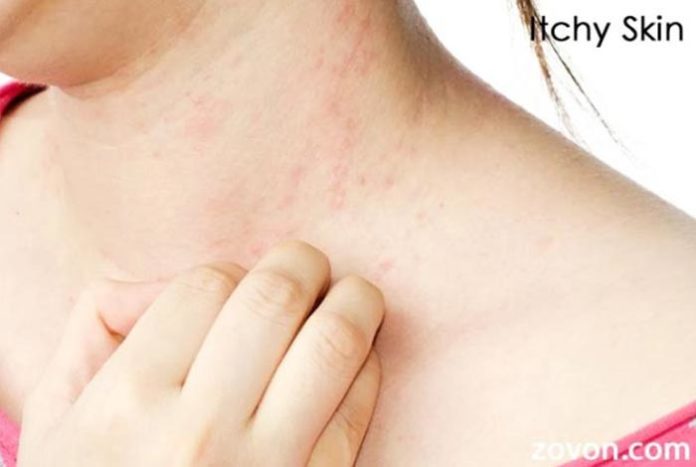
Many people feel itchy at some point of time. If you have a skin itching that might be due to a rash or other health condition. It could either be simply that the clothes you are wearing are irking you, or it could be signaling something more serious like any illness. It could be a symptom of liver disease or kidney failure as well. It is therefore important to immediately identify the underlying cause and find its treatment.
You can start with the simplest solution. Try changing the fabric of your clothes. Take care of your skin and avoid anything that triggers the itching. Doctor will be the right person to tell you what is causing the itch and what treatment is needed.
Dry skin:
Skin protects the body against bacteria and virus. If a foreign substance attacks the skin, it retaliates by giving a rash or dermatitis. Some rashes are red and painful, while others can even lead to blisters and patchiness. A dry cracked skin can cause itching.
Common causes of skin itching:
- Eczema: It is the most common type of skin dermatitis in children. Skin dries out in eczema leading to irritation and inflammation. Moisturization of skin is important.
- Allergies: When skin comes in direct contact with allergens, rashes and skin itching occur. Allergies can be triggered by touching, clothing, pets, soaps etc. Food allergies can also contribute to skin itching.
- Hives: Release of a chemical, known as histamine, causes small blood vessels to leak causing the skin to swell. The American College of Allergy, Asthma, and Immunology (ACCAI) claims that hives affect 20% of people at some or other point of time in their lives.
Treatment of itchy skin:
Use a moisturizer after bathing when the skin is still wet. People with eczema, dermatitis or hives may be prescribed corticosteroid creams by skin specialists. Over-the-counter medications may also be prescribed by doctors. Anti-allergy medications are recommended.
Topical inhibitors and oral antihistamines can help relieve the itch. People with kidney failures may be prescribed other treatments if medication therapy has to be avoided. Phototherapy or light therapy may be another treatment option. Light therapy involves exposing the skin to ultraviolet (UV) rays of certain wavelengths to get itching under control.
Self-care measures must also be taken. Avoid scratching, since it leads to further inflammation and may worsen the condition. If over-the-counter medicines do not work or rash spreads, it is highly recommended to consult a doctor immediately.
Source: medicalnewstoday.com





